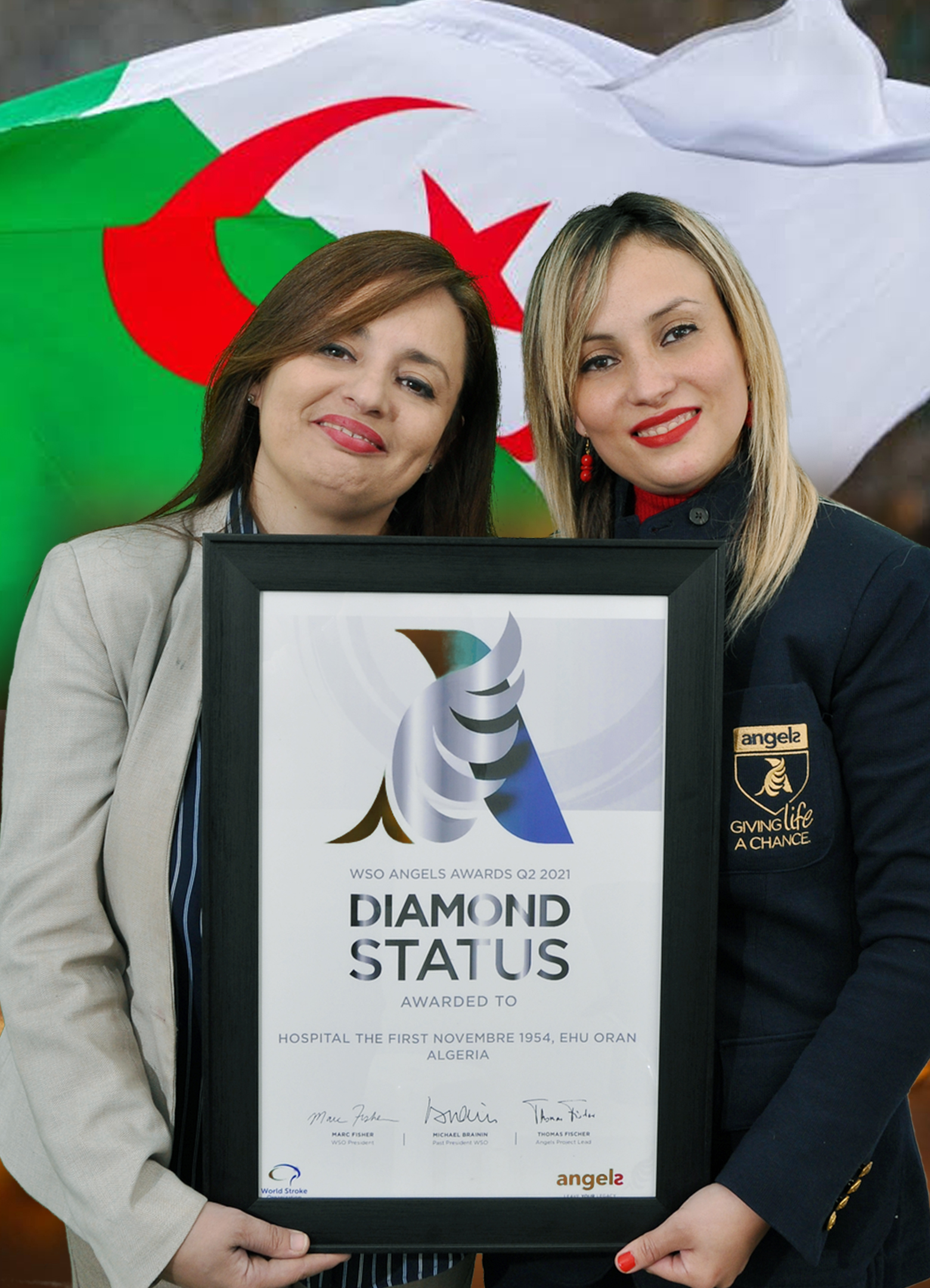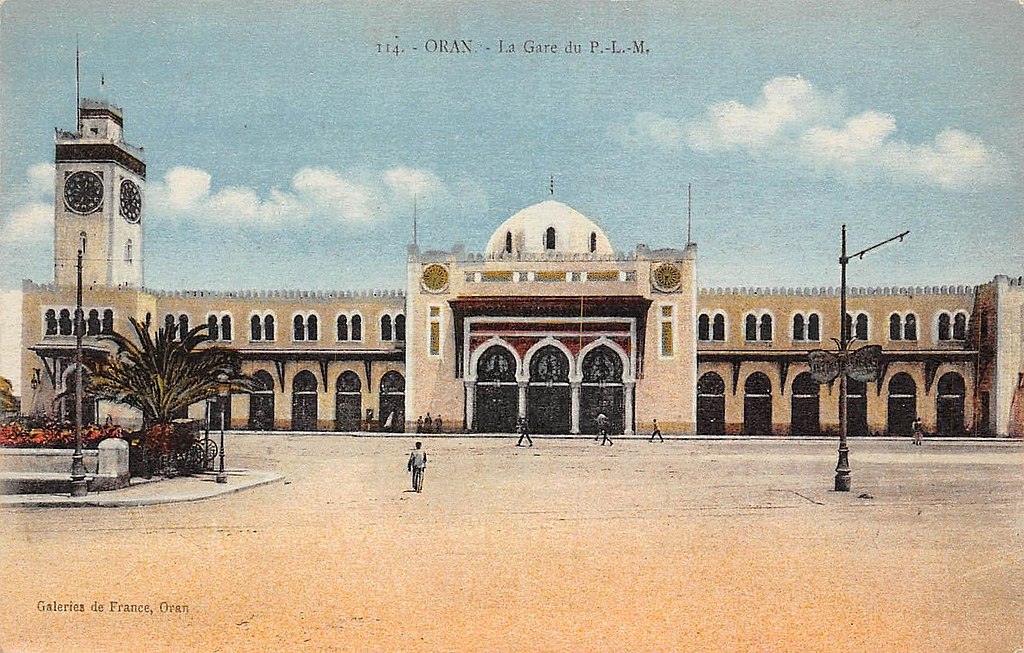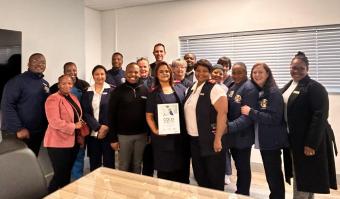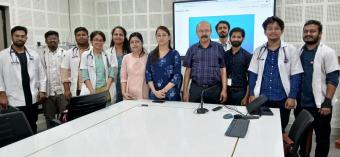Her colleagues in stroke care call her “the engine of the locomotive in her region and in the whole of Algeria”. Meet the unstoppable Professor Dounia Zede Badsi, a devoted doctor and determined reformer for whom impossible is just a dare.

Oran is the second-largest city in the largest country on the African continent. It’s where a small boy named Yves Saint Laurent played with his paper dolls back in the 1940s, and where Albert Camus’s fictional Doctor Bernard Rieux fights a lonely battle against the plague. It is also where a passionate young neurology professor leads a fight against stroke that could save thousands of Algerian lives.
Stroke kills around 16 000 Algerians per year and leaves the lives of thousands more in tatters. Treatment is scarce and becomes scarcer as you travel southward. When the former president, Abdelaziz Bouteflika, had a minor stroke in 2013, he was flown to Paris, France, for treatment.
Around the same time Professor Dounia Zede Badsi was returning from her second six-year stint in Paris – the first as a child while her father did his specialisation in cardiology, next to further her own training at Pitié-Salpêtrière University Hospital, Kremlin-Bicêtre and Hôpital Cochin following specialisation in neurology in Oran.
She came home with several advanced skills (diplomas in stroke emergency, MRI neuroimaging and non- invasive vascular imaging among them) acquired for a very specific purpose – to change the way stroke patients were treated in Algeria.
Her colleagues in Paris had cautioned that to achieve her aims she would have to convince hospital directors to work with her. Fortunately, as the director of Oran University Hospital would soon discover, Professor Dounia Zede Badsi is very, very convincing.
Let her convince you
The first to be convinced after the hospital administration, was the stroke team Prof Badsi would build over the next seven years – a team that, as soon as they became eligible for a WSO Angels Award, would skip gold and platinum to earn Algeria’s first diamond award in mid 2021. Easily exceeding the criteria for the award, their second would follow the very next quarter.
First, however, they would have to recruit more patients.
Although the first thrombolysis therapy in Algeria was administered in 2004 in the city of Blida and stroke impacted 60 000 lives a year, low awareness meant few patients correctly identified symptoms or sought treatment for stroke. With the goal of convincing the public, Prof Badsi became a regular guest on television, radio and online channels, and a great ally of the Angels Initiative, always willing to take the podium at stroke-related events.
Patient numbers grew, but because Algeria has no emergency medical service, many found their way to the hospital too late for treatment.
There were rather a lot of people to convince after Prof Badsi made up her mind to create Algeria’s first prehospital network. But not long after ER physicians and specialists in other departments had come on board, the first ever ambulance siren could be heard in Oran.
Direct communication between the ambulance team and the neurology department was established via a telephone number that, once activated, meant that prenotification, the priority action that kickstarts an optimised stroke pathway, was in place.
Next, it turned out to be really hard to convince the administration of the need for a home hospitalisation unit (HAD) that could care for stroke patients in their own homes. There simply wasn’t room in the hospital’s budget for a special vehicle and a dedicated team.
It’s fortunate, therefore, that Prof Badsi was able to convince a private donor to fund a service she had observed in Italy and France. The HAD unit is a win-win solution that lets patients access nursing care, physiotherapy and psychology services at home, and simultaneously frees up beds in the stroke unit at Oran University Hospital.
Ambition is devotion
Closing the gap between services available to stroke patients in Western Europe and those in her own country is Prof Badsi’s explicit goal. She is ambitious, too. For example, Oran may only have one ambulance for now, but ultimately she aims to replicate Germany’s so-
called red ambulance – a specialised stroke ambulance equipped with a portable CT scanner and a point-of-care laboratory that drastically reduces time to treatment.
Her ambition is rooted in deep devotion to her homeland – a quality that runs throughout this family of doctors nearly all of whom return from France to provide care to their fellow Algerians.
It’s her mother’s love of country that influences them, Prof Badsi says, just like it’s her cardiologist father who stirred her interest in emergency medicine, and her maternal grandfather who set the example of reformer and mobiliser as the founder of the humanitarian organisation, the Algerian Red Crescent.
Ambition also drives her collaboration with the Angels Initiative to create a regional network of stroke-ready centres and offer immersion learning to doctors and nurses from other hospitals. Indeed, the first thing Prof Badsi did after her team won its first diamond award was to invite doctors from elsewhere in the country to a webinar to explain how they did it.
“Impossible is nothing”
Ask Prof Badsi about her goals, and the answer is “more” – more and more centres, more and more trained doctors, more and more awards. In a nutshell: “I plan to stay in the country and keep doing the impossible to make things better.”
The reference to impossible evokes a kindred spirit – that of a certain boxing heavyweight dubbed The Greatest who had more insights to offer about “impossible” than the three-word slogan adopted by Nike suggests:
"Impossible is just a big word thrown around by small men who find it easier to live in the world they’ve been given than to explore the power they have to change
it. Impossible is not a fact. It’s an opinion. Impossible is not a declaration. It’s a dare. Impossible is potential. Impossible is temporary...”
In Oran, Algeria, the impossible is also something that you do.



